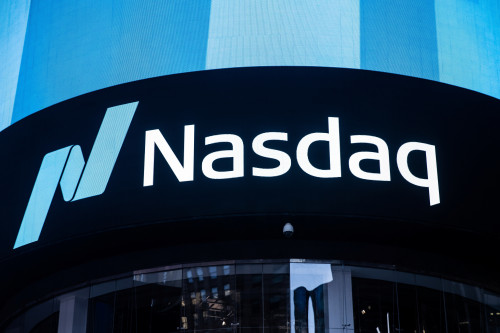By Anirban Sen and Chris Prentice
NEW YORK (Reuters) -U.S. exchange operators are in talks with the Securities and Exchanges Commission on easing regulatory burdens for public companies, as they seek to encourage more richly valued startups to list, according to four people familiar with the matter.
These deliberations, the details of which are reported here for the first time, involve the SEC, Nasdaq and the New York Stock Exchange. The reforms under discussion range from reducing the quantum of disclosures and the costs of going public to making it harder for minority investors to agitate, the sources said, requesting anonymity as they were not authorized to speak publicly.
The talks, which the sources said have been ongoing for several months, come amid a renewed push to ease regulations under President Donald Trump, whose administration has said it wants to do so to spur economic growth.
Taken together, some market experts said these discussions could mark the most significant push to introduce regulatory reform for companies since the Jumpstart Our Business Startups Act was signed into law by former President Barack Obama in 2012, and build on efforts seen during Trump’s first term.
“The numbers are very clear that companies are staying private longer,” Nasdaq President Nelson Griggs told Reuters. Griggs said the exchange operator has discussed making public markets more attractive with regulators in Washington but did not specify which agencies.
“We need to make the public markets attractive because that is really how you democratize access to these companies. So it’s a big focus of ours,” Griggs said. Nasdaq has publicly made the case for easing burdens by using remedies such as the modernization of the process for proxy filings.
In a statement to Reuters, Jaime Klima, general counsel of NYSE Group, said the exchange will “continue to advocate for our listed companies with regulators and policymakers.”
“We strongly believe that effective and efficient regulation is key to maintaining the attractiveness of our markets,” Klima said, without specifying any specific discussions ongoing.
The SEC, led by new chairman Paul Atkins, said it is looking to ease rules that can impede capital formation.
“The SEC is considering addressing regulatory burdens that undermine capital formation, including (ensuring) that initial public offerings are again something companies are eager to do,” a spokesperson for the agency said.
The SEC did not comment on specific discussions it has held with exchanges and other stakeholders.
However, relaxing rules around disclosure requirements and reducing costs of going public or remaining listed often come at the expense of investors, who face heightened risk of loss when regulations are cut, experts say.
“Historically, investors and issuers have viewed the U.S. capital markets as the best in the world. That’s because of the regulatory system,” said Jill Fisch, a University of Pennsylvania professor of business law. “It’s because if there’s full information markets function better. Securities are priced more accurately. That’s good for everyone.”
REGULATORY ROLLBACK
The discussions zero in on regulations that make it harder for companies to list and then stay public, according to the sources.
One area in focus is an overhaul of current proxy processes, which involves information that companies have to provide shareholders to allow them to vote on various matters.
The reform would make it harder for activist shareholders with small stakes to launch proxy contests and curb repetitive proxy proposals from minority investors, the sources said. It would also lead to less onerous disclosure requirements in preliminary proxy filings, according to the sources.
Another effort involves making it less expensive for companies to list on exchanges and remain public by reducing fees associated with listing, the sources said.
The conversations also include making it easier for companies that went public through deals with special purpose acquisition companies (SPACs) to raise capital, the sources said. In recent years, the SEC had cracked down on SPACs, in which a firm goes public by selling itself to a listed shell company, as a work around listing regulations.
The rollbacks would also make it easier for public companies to raise capital by selling additional shares through follow-on offerings, they said.
REGULATION BUILDUP
Public companies have witnessed a buildup in disclosure requirements since the landmark 2002 Sarbanes-Oxley law. Periods of market stress, such as the 2008 global financial crisis, the SPAC boom and meme stock trading in the aftermath of the COVID-19 pandemic, led to heightened regulatory oversight of corporate behavior.
The SEC has over the years increased disclosure requirements on a variety of issues, including climate, cybersecurity, risk factors, and proxy reporting, according to capital markets experts.
For instance, when Apple went public in 1980, its IPO prospectus was 47 pages, according to a copy of the prospectus.
That compares with a current typical IPO prospectus of 250 pages, including significant generic language around risk factors, said Jay Ritter, a finance professor at the University of Florida.
There have been previous efforts to roll back regulation for public companies. The JOBS Act helped facilitate confidential IPO filings that allow companies to submit their registration paperwork privately to the SEC, away from the scrutiny of investors.
Rollbacks also happened during President Trump’s first term when then SEC chair Jay Clayton pushed for a lighter touch on regulation, including curbing some provisions of major laws such as the Dodd-Frank Act.
PUBLIC COMPANY SHRINKAGE
Since 2000, the number of public companies listed on U.S. exchanges has declined 36% to 4,500, according to figures compiled by Nasdaq.
The increase in regulations and decrease in public companies has been criticized by leading Wall Street executives such as JPMorgan Chase CEO Jamie Dimon and Citadel Securities founder Ken Griffin.
Some companies have chosen to stay away from IPOs to avoid what they see as onerous disclosure requirements, additional regulatory scrutiny, and the costs associated with going public, said two people familiar with the matter, citing Elon Musk’s SpaceX as being reluctant to list.
SpaceX did not immediately respond to requests for comment.
However, easing regulatory burdens may not result in an overnight change.
“Do I think there’s going to be a bull rush to the door for IPOs because of the rulemaking (from the SEC)? Probably not,” said Dave Peinsipp, co-chair of the global capital markets group at law firm Cooley. He said it would be heavily dependent on returns and valuations companies can get.
(Reporting by Anirban Sen in New York; Additional reporting by Chris Prentice and Krystal Hu; editing by Megan Davies, Paritosh Bansal and Nick Zieminski)





